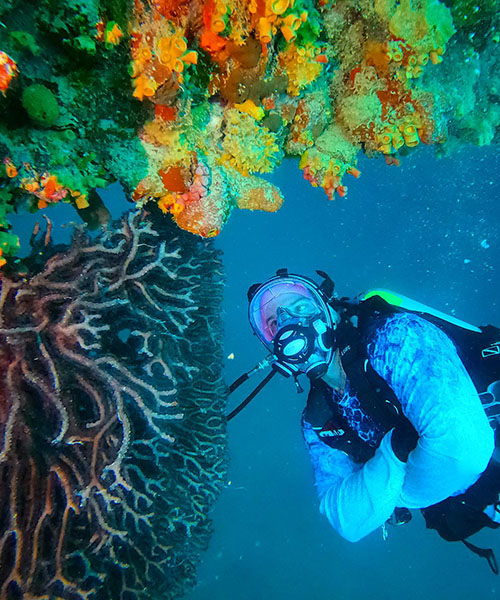
Harrison M. Albert, Ph.D.
Track: Marine Mammal Science (MMS)
Graduated: 2018
What is your current job and main responsibilities?
Currently, I am the Permit Coordinator for NOAA’s Florida Keys National Marine Sanctuary. In this role, I evaluate research proposals and other permit applications submitted by scientists to determine if there would be an adverse environmental impact on sanctuary resources. To accomplish this, I apply my understanding of the scientific method and my knowledge of the marine ecosystem, both of which I learned from my time here at UM RSMAS! My own current research investigations include all things conservation-related from marine mammals, sponges, and corals. Lastly, I am also still very involved with the University of Miami M.P.S. Program, guest lecturing in several Marine Mammal Science courses for my former professors and sitting on several M.P.S. student committees in the Marine Conservation and Marine Mammal Science tracks from which I was awarded the University of Miami 30 Under 30 award.
Tell us about your MPS internship
For my M.P.S. internship, I evaluated the impact and conservation initiatives of education and outreach programs of marine mammal facilities. After graduation, my internship turned into a full-time employment opportunity where I became the Senior Marine Biologist for the facility. I then continued my passion for marine conservation and education by establishing a conservation program at a dive resort in the Florida Keys and completed my Ph.D. program. After earning my doctorate degree, I transitioned into my current job as a marine scientist for the FL Keys National Marine Sanctuary.
What were your favorite classes at Rosenstiel School and why?
My favorite classes at RSMAS were the Marine Mammal Research Techniques course (MBE632) and the Marine Mammal Applied Behavior Analysis course (MBE607). These classes (like most at RSMAS ) are hands-on, field-based experiential learning courses where the majority of the learning and instruction takes place in real-time out in the field. While at RSMAS, I was also a graduate teaching assistant (T.A.) for MBE607 for several semesters which allowed me to gain my higher education teaching experience prior to graduation.
What are your favorite Rosenstiel School memories?
My favorite RSMAS memories include being able to spend time with my classmates on program field trips, studying in the library, or relaxing together on the RSMAS beach. The Marine Mammal Science track is extremely competitive (typically only 8 students are admitted to the program each year), so the small class sizes allow you to get to know your classmates very well and form a small tight-knit "pod". Having these close relationships with your classmates is critical to enjoying the most of your time while at RSMAS and also working together to be successful in your courses.
What piece of advice would you give to current or incoming MPS students?
My advice to current or incoming MPS students would be to enjoy your time in the program. I would also recommend taking advantage of as many opportunities and courses as you can even if they are not directly in your area of interest. The M.P.S. program is filled with extremely knowledgeable and respected experts in their respective fields, so don't be afraid to reach out to one of them if you are interested in getting involved in their research. Networking and meeting as many people as you can is critical to your future employment, so don't be shy or afraid to put yourself out there.




